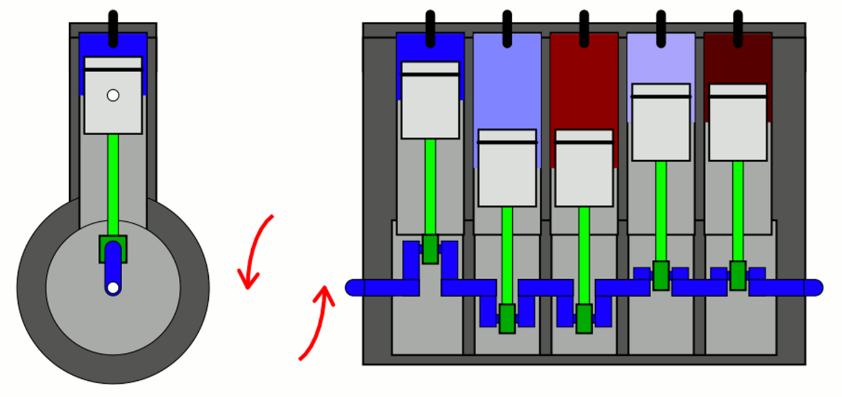Skip to main content Contents Prev Up Next \(\require{cancel}\require{mhchem}\let\vecarrow\vec
\renewcommand{\vec}{\mathbf}
\newcommand{\ihat}{\vec{i}}
\newcommand{\jhat}{\vec{j}}
\newcommand{\khat}{\vec{k}}
\DeclareMathOperator{\proj}{proj}
\newcommand{\kg}[1]{#1~\mathrm{kg} }
\newcommand{\lbm}[1]{#1~\mathrm{lbm} }
\newcommand{\slug}[1]{#1~\mathrm{slug}}
\newcommand{\m}[1]{#1~\mathrm{m}}
\newcommand{\km}[1]{#1~\mathrm{km}}
\newcommand{\cm}[1]{#1~\mathrm{cm}}
\newcommand{\mm}[1]{#1~\mathrm{mm}}
\newcommand{\ft}[1]{#1~\mathrm{ft}}
\newcommand{\yd}[1]{#1~\mathrm{yd}}
\newcommand{\inch}[1]{#1~\mathrm{in}}
\newcommand{\mi}[1]{#1~\mathrm{mi}}
\newcommand{\N}[1]{#1~\mathrm{N} }
\newcommand{\kN}[1]{#1~\mathrm{kN} }
\newcommand{\MN}[1]{#1~\mathrm{MN} }
\newcommand{\lb}[1]{#1~\mathrm{lb} }
\newcommand{\lbf}[1]{#1~\mathrm{lbf} }
\newcommand{\Nm}[1]{#1~\mathrm{N}\!\cdot\!\mathrm{m} }
\newcommand{\kNm}[1]{#1~\mathrm{kN}\!\cdot\!\mathrm{m} }
\newcommand{\ftlb}[1]{#1~\mathrm{ft}\!\cdot\!\mathrm{lb} }
\newcommand{\ftlbf}[1]{#1~\mathrm{ft}\!\cdot\!\mathrm{lbf} }
\newcommand{\inlb}[1]{#1~\mathrm{in}\!\cdot\!\mathrm{lb} }
\newcommand{\lbperft}[1]{#1~\mathrm{lb}/\mathrm{ft} }
\newcommand{\lbperin}[1]{#1~\mathrm{lb}/\mathrm{in} }
\newcommand{\Nperm}[1]{#1~\mathrm{N}/\mathrm{m} }
\newcommand{\kgperkm}[1]{#1~\mathrm{kg}/\mathrm{km} }
\newcommand{\psinch}[1]{#1~\mathrm{lb}/\mathrm{in}^2 }
\renewcommand{\psi}[1]{#1~\mathrm{psi} }
\newcommand{\pqinch}[1]{#1~\mathrm{lb}/\mathrm{in}^3 }
\newcommand{\psf}[1]{#1~\mathrm{lb}/\mathrm{ft}^2 }
\newcommand{\pqf}[1]{#1~\mathrm{lb}/\mathrm{ft}^3 }
\newcommand{\Nsm}[1]{#1~\mathrm{N}/\mathrm{m}^2 }
\newcommand{\kgsm}[1]{#1~\mathrm{kg}/\mathrm{m}^2 }
\newcommand{\kgqm}[1]{#1~\mathrm{kg}/\mathrm{m}^3 }
\newcommand{\Pa}[1]{#1~\mathrm{Pa} }
\newcommand{\kPa}[1]{#1~\mathrm{kPa} }
\newcommand{\aSI}[1]{#1~\mathrm{m}/\mathrm{s}^2 }
\newcommand{\aUS}[1]{#1~\mathrm{ft}/\mathrm{s}^2 }
\newcommand{\mps}[1]{#1~\mathrm{m/s} }
\newcommand{\mph}[1]{#1~\mathrm{mi/hr} }
\newcommand{\unit}[1]{#1~\mathrm{unit} }
\newcommand{\ang}[1]{#1^\circ }
\newcommand{\second}[1]{#1~\mathrm{s} }
\newcommand{\minute}[1]{#1~\mathrm{min} }
\newcommand{\hr}[1]{#1~\mathrm{hr} }
\newcommand{\lt}{<}
\newcommand{\gt}{>}
\newcommand{\amp}{&}
\definecolor{fillinmathshade}{gray}{0.9}
\newcommand{\fillinmath}[1]{\mathchoice{\colorbox{fillinmathshade}{$\displaystyle \phantom{\,#1\,}$}}{\colorbox{fillinmathshade}{$\textstyle \phantom{\,#1\,}$}}{\colorbox{fillinmathshade}{$\scriptstyle \phantom{\,#1\,}$}}{\colorbox{fillinmathshade}{$\scriptscriptstyle\phantom{\,#1\,}$}}}
\)
Subsection 6.3.3 Degree of Crankshaft Rotation
All events that occur in an engine are related to the location of the piston. Because the piston is connected to the crankshaft, any location of the piston corresponds directly to a specific number of degrees of crankshaft rotation. Location of the crank can then be stated as
\(x\) degrees before or after top or bottom dead center. These are usually abbreviated so,
BTDC means “Before Top Dead Center”.
Figure 6.3.4.


